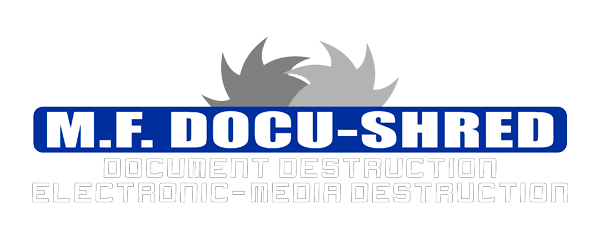
Safeguarding personal and business data is no longer a best practice—it’s a legal obligation. Across the United States, states are enacting their own data protection laws to fill in gaps left by federal legislation, and Kansas is no exception. Whether you’re operating a small business in Hugoton or managing a large enterprise across the state, understanding how to ensure compliance with data protection laws in Kansas is critical. Failing to do so can lead to reputational damage, lawsuits, or costly penalties. This blog provides a comprehensive guide to help you navigate the regulatory compliance landscape in Kansas and establish robust data protection protocols.
Understanding Data Protection Laws in Kansas
Kansas does not currently have a comprehensive data privacy law like California’s CCPA or Virginia’s CDPA. However, businesses operating in Kansas must still adhere to several data protection laws, both at the federal and state levels. At the federal level, laws such as HIPAA (Health Insurance Portability and Accountability Act), GLBA (Gramm-Leach-Bliley Act), and the Children’s Online Privacy Protection Act (COPPA) set the foundation for data protection practices. Any business dealing with healthcare, financial data, or children’s information must comply with these.
At the state level, Kansas has enacted several sector-specific statutes to promote data security. Kansas Statutes Annotated (K.S.A.) § 50-7a01 through § 50-7a09 outlines obligations around data breach notifications. Under these laws, businesses must notify Kansas residents “without unreasonable delay” if their unencrypted personal information is compromised. The definition of personal information includes full names in conjunction with Social Security numbers, driver’s license or state ID numbers, and financial account details.
The implications of these regulations are especially important for local communities like Hugoton, where businesses might assume they’re insulated from state-wide regulatory demands. In reality, small-town businesses handling personal data must also ensure compliance with Kansas data protection laws.
Key Components of Regulatory Compliance
Achieving regulatory compliance in Kansas involves a multi-layered approach, combining policy creation, technological safeguards, and staff training. The first and most essential step is understanding what data your business collects, processes, and stores. Data mapping is a crucial process here. It allows businesses to trace the flow of personal information across systems and vendors. Once you understand what you’re handling, you can align your practices with the appropriate legal frameworks.
Next, implement strict data access controls. Only authorized personnel should have access to sensitive information. Deploying two-factor authentication and access logs adds layers of security that can deter unauthorized use. Regular audits of data access are necessary to maintain oversight.
Encryption and secure data storage practices form another cornerstone of compliance. Encrypt data both in transit and at rest to protect it from interception. For small businesses in Hugoton, affordable cloud services that offer built-in encryption features can provide a compliant and scalable solution.
Another critical compliance strategy is to draft and regularly update a privacy policy. Transparency is a major requirement under most data protection laws. Your privacy policy should clearly explain what data is collected, why it’s collected, how it’s stored, and with whom it may be shared. Displaying this policy prominently on your website and at points of data collection is essential.
Incident Response and Breach Notification
Even with strong preventive measures, no system is entirely immune to data breaches. That’s why every business in Kansas should maintain a documented and rehearsed incident response plan. This plan should outline the steps to be taken immediately following a breach, including identifying the scope of the breach, containing the issue, and preserving evidence for legal or forensic analysis.
Under Kansas law, as soon as a breach is discovered, affected individuals must be notified if their personal information was or is reasonably believed to have been accessed or acquired by an unauthorized party. Notifications should include a description of the breach, the types of information involved, and contact details for the business. In some cases, such as breaches affecting more than 1,000 residents, notifications must also be sent to national consumer reporting agencies.
It’s also prudent to maintain cyber liability insurance. This can cover costs associated with notification, investigation, legal fees, and even public relations efforts following a breach. For businesses in Hugoton and other smaller Kansas cities, this added protection can be a lifeline in an increasingly hostile digital landscape.
Employee Training and Organizational Culture
One often-overlooked aspect of regulatory compliance is the role of employees. Human error remains one of the leading causes of data breaches. Even the most sophisticated security systems can be undermined by a single click on a phishing email or careless handling of sensitive information.
Regular training sessions for staff are essential. These sessions should cover the basics of data protection laws in Kansas, common cyber threats, safe browsing practices, and how to recognize and report suspicious activity. Provide your team with clear protocols for handling sensitive data, and make sure they understand the consequences of failing to comply.
Creating a culture of compliance starts at the top. Leadership should model best practices and prioritize data protection in strategic planning. Incorporating compliance into performance metrics or departmental KPIs helps reinforce its importance across the organization. Encourage open dialogue around cybersecurity and privacy so that team members feel comfortable flagging issues before they escalate.
Staying Ahead of Evolving Regulations
Data protection is a rapidly evolving field. New laws are being proposed and enacted across the United States, and Kansas is expected to follow suit in strengthening its regulatory framework. Businesses that proactively adapt their compliance strategies will be better positioned for future changes.
One effective way to stay updated is to subscribe to newsletters or alerts from relevant regulatory bodies and legal firms that specialize in data privacy. For instance, the Kansas Attorney General’s office periodically issues updates regarding data protection enforcement actions and changes to state laws.
It’s also wise to conduct annual compliance audits. These audits should assess not just the state of your data protection technologies, but also review employee training records, policy updates, and vendor compliance. If you’re relying on third-party providers—whether for payment processing, cloud storage, or marketing automation—ensure they meet the same regulatory standards you’re held to.
For businesses operating in Hugoton or similar rural communities, partnering with regional IT consultants familiar with Kansas-specific compliance can be highly beneficial. These professionals can help conduct risk assessments, deploy compliance software, and develop response plans tailored to your industry.
Looking to the future, compliance will likely move from a reactive to a proactive discipline. Tools like data loss prevention (DLP) software, AI-driven security monitoring, and privacy management platforms are becoming more accessible to businesses of all sizes. Leveraging these technologies not only strengthens compliance but also builds customer trust—a valuable currency in today’s data-driven economy.
Conclusion
Ensuring compliance with data protection regulations in Kansas is a continuous process, not a one-time effort. Whether your business operates in bustling urban centers or quieter towns like Hugoton, the responsibility to protect consumer data is the same. By understanding the current legal landscape, implementing robust security measures, training employees, and preparing for regulatory changes, you can turn compliance from a regulatory hurdle into a strategic advantage.
With data protection laws becoming increasingly stringent across the U.S., now is the time to take a proactive stance. Investing in compliance not only helps avoid penalties and lawsuits but also establishes your reputation as a trustworthy business. In a world where data is power, respecting privacy is paramount—and in Kansas, it’s the law.
If you’re feeling the pressure of navigating Kansas data protection laws, you’re not alone—and we’re here to help. At M.F. Docu-Shred, we specialize in secure document and digital media destruction solutions that support regulatory compliance for businesses across Hugoton and beyond. Our team understands the evolving landscape of privacy laws and can help you build a destruction process that not only protects your data but also strengthens customer trust. Don’t wait for a breach or audit to expose gaps in your system—reach out today and let us help you stay compliant, secure, and ahead of the curve.

